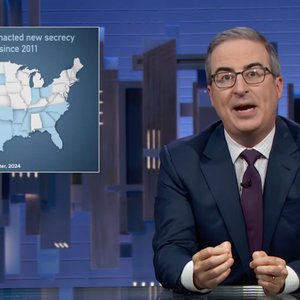
Citing “egregious” misconduct by state prison officials in trying to evade a court order to produce public records concerning its efforts to obtain lethal-injection drugs, an Indiana judge has directed the state’s Department of Correction to pay more than a half million dollars in plaintiffs’ attorney fees. On June 12, 2019, Marion County Circuit Judge Sheryl Lynch (pictured) awarded $538,000 in attorney fees to plaintiffs who were seeking public release of records regarding the drugs Indiana intended to use in future executions. The suit began as a public-records request in 2014, but because of the Indiana Department of Correction’s repeated refusal to release the records or comply with court orders, it expanded to include late-night secrecy legislation and multiple court rulings.
In 2015, Washington-based lawyer A. Katherine Toomey filed suit in Indiana state court after the Indiana Department of Correction refused to produce execution-related records she had requested under the state public records law. On October 24, 2016, she won a summary judgment requiring the Department to release the records. In 2017, while the Department’s appeal of that decision was pending, the Indiana legislature adopted a retroactive secrecy statute to block the ruling from taking effect. At 2:00 a.m. on the final day of the 2017 legislative session, the legislature inserted a two-page secrecy provision into the state 175-page budget bill.
Judge Lynch struck down the secrecy law in 2018, finding that the law had been designed specifically to alter the outcome of the court proceedings. “The General Assembly does not have the authority to determine the outcome of pending litigation,” she wrote. “As applied to this case, the General Assembly’s passage of the Statute overstepped its authority and violated the Indiana Constitution’s Separation of Powers by disturbing a pending case and upsetting this Court’s judgment.” Judge Lynch specifically singled out the law’s unconstitutional retroactivity provisions, writing, “[t]he Statute’s retroactivity clause violates the prohibition against special laws because it impermissibly applies to only one lawsuit by a single individual. According to the Department’s own records, Toomey is the only person who, at the time the Statute was conceived and ultimately enacted, had ever requested access to public records regarding the State’s lethal-injection drugs.”
The court faulted state officials for the unnecessary litigation that led to the fee award. “If the Department had not gone to the General Assembly without knowledge to Toomey or the Court to get a retroactive statute to essentially vacate this Court’s Order for Summary Judgment … and file an improper appeal to the Indiana Court of Appeals and the Indiana Supreme Court to prolong the Attorney Fee hearing, then Toomey would not have needed to file its pleading to force the public disclosure of e‑mails and legislative materials,” Lynch wrote. She called the Department’s successful attempt to “obtain a retroactive statute [to vacate the summary judgment order] without advising the Court and Toomey” in advance, and its abuse of the appellate process, “egregious.” Toomey’s request for costs and attorney fees were reasonable, the court wrote, “given the procedural history of [the] request for the lethal injection information.” “[A] simple [public records] request turned into major litigation given the Department’s handling of this case,” she said.
(Dave Stafford, Judge: DOC must pay $538K in ‘egregious’ death penalty records case, The Indiana Lawyer, June 13, 2019; Dave Stafford, Judge strikes lethal injection secrecy law, says lawmakers ‘overstepped’, The Indiana Lawyer, November 30, 2018.) Read Judge Lynch’s order. See Lethal Injection.
Indiana
Dec 17, 2024
Indiana’s First Execution in 15 Years Raises Serious Constitutional Concerns
Lethal Injection
May 06, 2024

